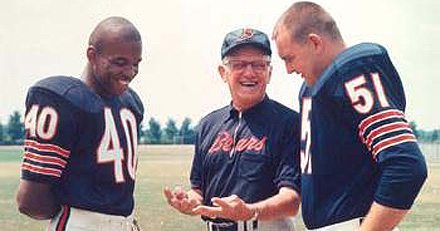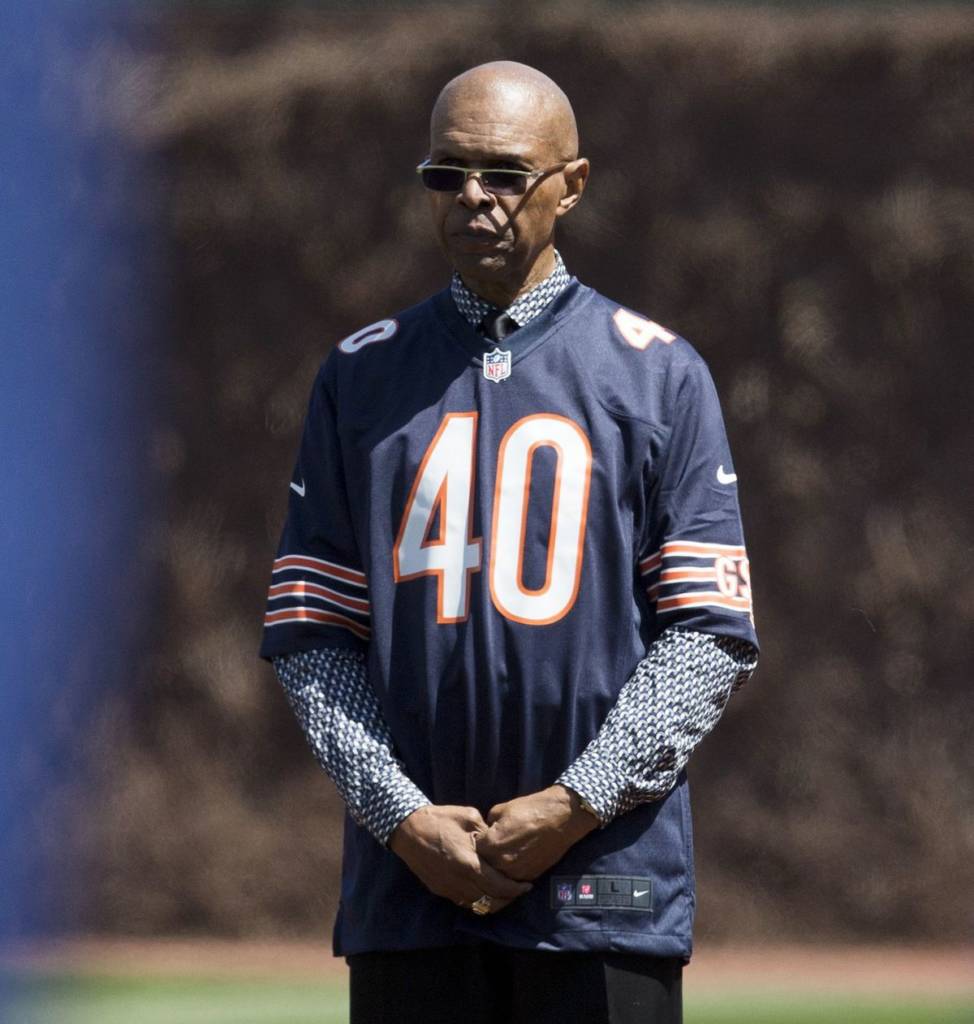
Legendary NFL football player Gayle Sayers was a beast on the field. During his stint in the league for seven years, he was named the NFL's Rookie of the Year. He also earned four Pro Bowl appearances and five first-team All-Pro selections. A right knee injury forced Sayers to miss the final five games of the 1968 season, but he returned in 1969 to lead the NFL in rushing yards and be named the NFL Comeback Player of the Year.
In 1967, Sayers and Bears teammate Brian Piccolo became the first interracial roommates in the NFL. Sayer’s friendship Piccolo and Piccolo’s subsequent diagnosis of cancer was the subject of the made-for-TV hit movie, Brian’s Song.
In 1971, Sayers was portrayed by Billie Dee Williams in the film; in the 2001 remake, he was portrayed by Mekhi Phifer.
Now, the once vibrant player is suffering from dementia.
In a moving story by Vahe Gregorian of the Kansas City Star, the family of the legendary Chicago Bears running back says he’s still physically strong but struggling with many daily activities.
“That brain controls everything, doesn’t it?” said his wife, Ardythe (Ardie) Sayers.

His wife described the vigilance required to care for Sayers now, noting that he recently tried washing his hands with carpet cleaner. She said another NFL wife told her: “Don’t let him out of your sight.”
“It keeps you on your toes,” she said.
The story describes Sayers as able to have “halting” conversations, but noted that he barely spoke during a seven-hour visit with a reporter. It came out that the 73-year-old former star was diagnosed four years ago.
Ardie blames football for his condition. Gale Sayers played for the Chicago Bears from 1965-71 after setting records at the University of Kansas and earning the nickname, the “Kansas Comet.” He was an incredible football player.
Sayers was a first-round pick in the 1965 NFL draft. In his rookie season, he set a league record by scoring 22 total touchdowns and gained 2,272 all-purpose yards.
In 1973, Sayers was elected to the Nebraska Sports Hall of Fame, the first black athlete to be so honored. He was inducted into the College Football Hall of Fame in 1977 and later that year into the Pro Football Hall of Fame, the youngest inductee in its history to this day.
More attention is being paid to the long-term effects of playing football. A 2014 study determined that nearly 30 percent of former NFL players will end up developing Alzheimer’s disease or dementia across their lifetime, placing them at a significantly higher risk than the general population.
In September 2013, Sayers sued the NFL, claiming the league negligently handled his repeated head injuries during his career. The case was withdrawn after Sayers claimed it was filed without his permission, but he filed a new lawsuit in January 2014 along with six other former players.

His brother, Roger Sayers, tells the Star it’s “tough” to “build memories all your life, and the next thing you know you don’t remember anything.”









